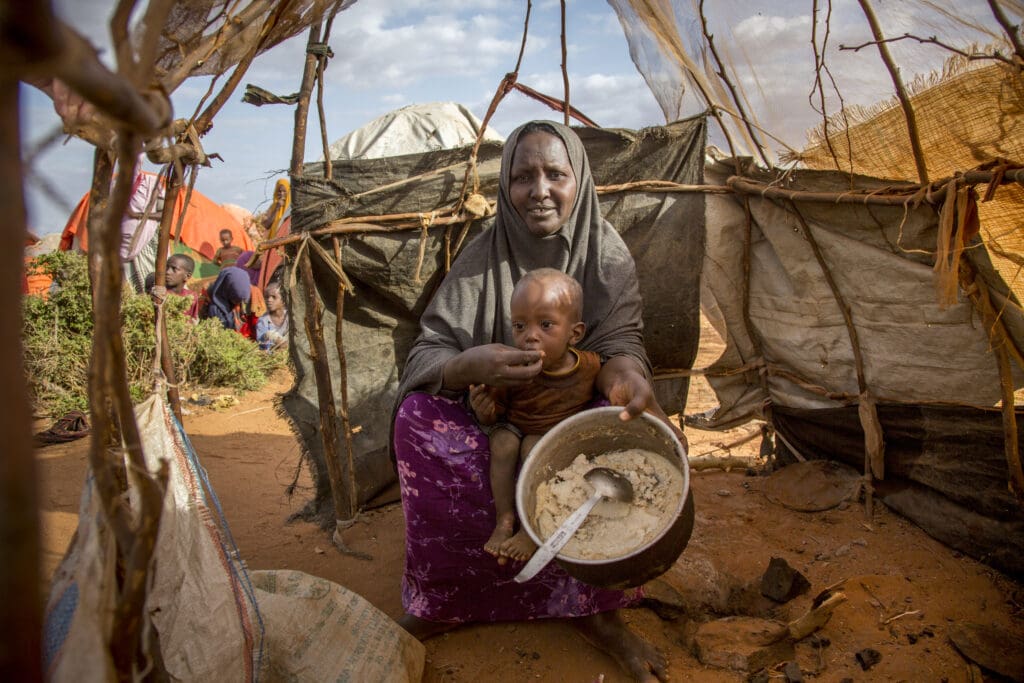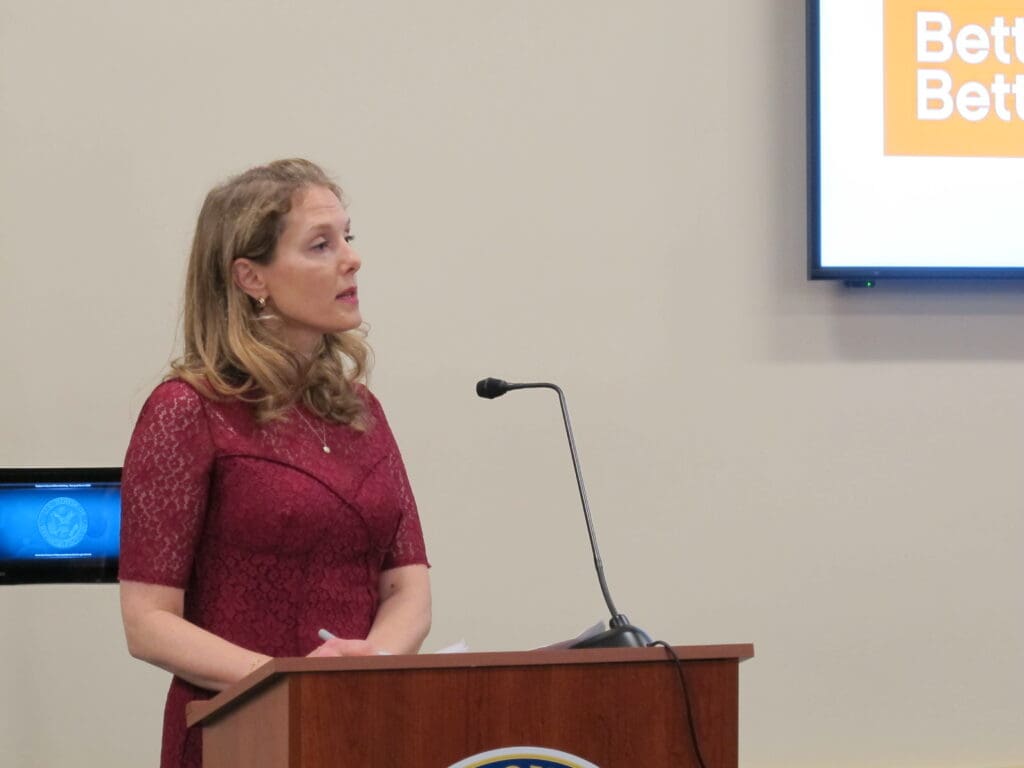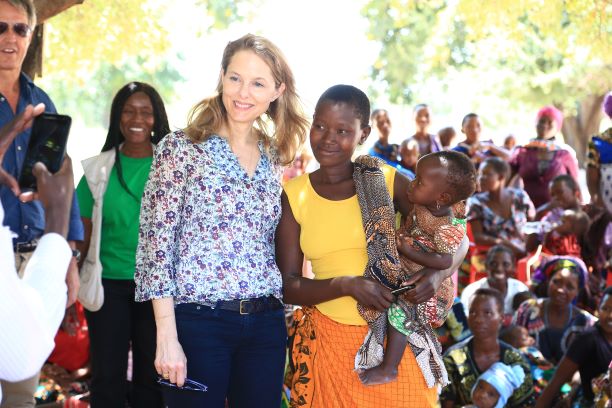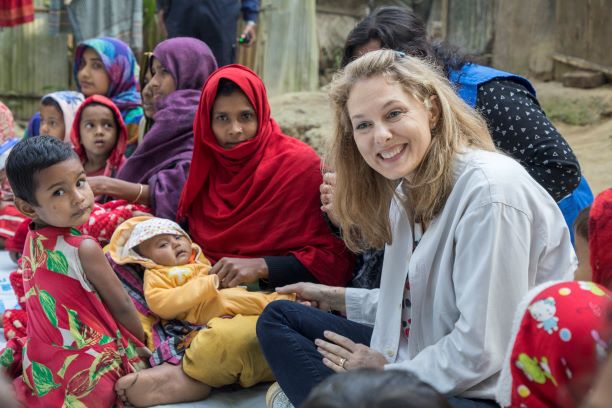A Message From the Princess of Jordan: “We must not fail them”

It’s not every day that the words “princess,” “global nutrition,” and “life on Mars” appear in the same sentence. But that’s exactly what happened in a small room on Capitol Hill last week when Princess Sarah Zeid of Jordan – a Texas native and WFP special adviser – addressed a room full of people about the critical importance of mother and child nutrition.
Her remarks are a powerful reminder of why so many organizations, including WFP, work to ensure that women and children get the food they need to survive and thrive.
Princess Sarah Zeid:
Ten years ago, I suffered from a rare and catastrophic event when I delivered my third child. The level of quality, respectful care, support and medical expertise my baby and I needed exists in this great country and must be accessible to every woman and her child before, during and after pregnancy and birth.
I wish our being here was a true celebration; that we could cheer a job well done and that my role was to inspire you for one last great push. Instead – tragically – what is required is a deep breath, renewed commitment and for us to dive bare-knuckled, courageous and more determined than ever into the fight to do more, for more, and to do it better.

“Good nutrition is the bed-rock of sustainable development, peace and security.” – Princess Sarah Zeid of Jordan
More than 130 million people are in need of humanitarian assistance and protection worldwide, 34 million of whom are women and girls of reproductive age and 5 million of whom are estimated to be pregnant.
Rising sea levels, extreme weather events and prolonged drought have affected millions of people. An estimated 68.5 million people have been forcibly displaced, uprooted by conflict and crisis and forced to leave their homes, land, livelihoods and traditions.
While one segment of society is dreaming of life on Mars, over 113 million others are facing acute hunger and dreaming of food.
You stand at the pivot point of this complex web of human inequality, conflict and disaster with a critical role to play if we are to improve the lives of everyone, everywhere. Good nutrition is the bed-rock, the essential ingredient without which we negate the positive impact of all other interventions and support, condemning the world’s most vulnerable people to a cycle of dependency, failure and frustration which will last for generations.
I’m going to say this again, because we know it to be true: good nutrition is the bed-rock of sustainable development, peace and security.
Women and girls are the key-stone.

“Each of us shares the same hopes: to be safe, healthy, and to provide for and raise healthy, educated children with dignity.” – Princess Sarah Zeid of Jordan
The evidence is clear: when pregnant and nursing mothers are malnourished, the transcending effects on future generations are largely irreversible. Proper nutrition during the first 1,000 days of life – from conception to a child’s second birthday – provide the essential building blocks for brain development, healthy growth and a strong immune system. Without it, the resulting damage to a child’s neurological and physical development leads to a diminished capacity to learn, poorer performance in school, greater susceptibility to disease and a lifetime of lost earning potential.
Women who are healthy, with their nutritional needs met, are the first responders to shocks – be they man made or mother nature – and are the first line of defense for children, families and communities. They are better able to earn an income, ensure their children go to school, and participate in activities where women’s voices and knowledge are urgently needed.
Your support and commitment to the World Food Programme, an organization on the front line of humanitarian assistance and the prevention agenda, makes this possible.
Through my work and travels with WFP and partners, I have had the opportunity to meet with women and girls in countries all over sub-Saharan Africa, Bangladesh and the Middle East. Each of us shares the same hopes: to be safe, healthy, and to provide for and raise healthy, educated children with dignity.
The communities I have visited, however, were not afforded even the most basic of services needed to survive and thrive, let alone achieve their dreams.

“These are our mothers, daughters, sisters and tiny babies who should be at the center of our lives and efforts…We must not fail them.” – Princess Sarah Zeid of Jordan
I’ve seen grieving women and girls whose premature babies had died just hours before. I’ve seen mothers, aunts and grandmothers with multiple malnourished children in their care, who themselves were surviving on one meager meal a day. I met a 19-year-old and her equally young husband, pregnant with their third child. I’ve met young people so obviously too small for their age who will suffer the multiple permanent consequences of chronic malnutrition. I saw women and girls spending the bulk of their day walking to find water or wood and classrooms where one teacher with no tools was doing their best for the 70 eager faces wanting more.
These are our mothers, daughters, sisters and tiny babies who should be at the center of our lives and efforts, of our families, communities, our economies and are the heart of peace and sustainable development. We must not fail them.
By working together and challenging each other to do more, for more and to do it better, by committing ourselves anew to the health and wellbeing of others, we will not fail them.
In nearly two-thirds of countries around the world, women are more likely than men to suffer from hunger and malnourishment.




